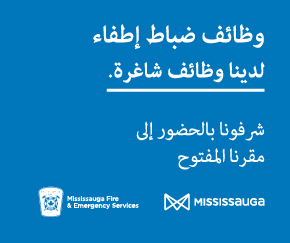اخبار العرب-كندا 24: الثلاثاء 23 يناير 2024 05:25 صباحاً
A federal humanitarian program to bring migrants from the Caribbean and South America to Canada has reached capacity less than two months after its launch, prompting criticism about what one man is calling the Canadian government's "inequitable" response to immigration from certain countries.
Ottawa resident Nixon Valere, 54, was ecstatic when the federal government announced in October that it would open the door to 11,000 people from Colombia, Venezuela and Haiti who have immediate family members living in Canada, either as citizens or permanent residents. The program was officially launched the following month.
For years, Valere has wanted to bring his six brothers and their children to join the rest of his family in Canada from Haiti because it's a dangerous and even deadly place to live, he said.
"The whole neighborhood is invaded by gangs," said Valere, who left his hometown of Port-au-Prince for Canada in 1999. "They ask people to give money. If they don't give money, they will kill them. They don't care."
Haiti has faced a profound security crisis exacerbated by brazen criminal gangs since mid-2021, leading to rampant violence, cholera outbreaks and restricted access to food, water and medical care.
As soon as Immigration, Refugees and Citizenship Canada (IRCC) launched the program on Nov. 17, Valere and his family in Canada submitted applications for their 12 relatives still in Haiti.
But from the beginning, Valere said the application process proved challenging. Each one of his brothers and their children required a number of documents including travel papers, police certificates and in some cases, proof of a biometric exam.
Valere, seated beside his mother Josette Amazan, holds up a tablet displaying a photo of one of his nieces who's still in Haiti. (Jean Delisle/CBC)
Obtaining these documents in a country like Haiti can be difficult, Valere explained, recounting how one brother was nearly gunned down by gang members as he took public transportation to get the results of his biometric exam.
Story continues
It's not cheap, either: Each document costs up to several hundred dollars in U.S. currency, he said.
Valere said his family has spent thousands of dollars and many hours uploading all the necessary paperwork, only to have each application returned as "incomplete" by IRCC.
Program closed by new year
To make matters worse, there's no chance for him to upload any missing documents because the program closed after reaching capacity at the end of December.
Valere sent letters to IRCC requesting more time to submit his application, but has not received any response, he said.
"I feel really speechless. Useless, because I don't have any power to do anything anymore," Valere said.
People fleeing gang violence take shelter at a sports arena in Port-au-Prince on Sept. 1, 2023. (Ralph Tedy Erol/Reuters)
Ottawa-based immigration lawyer Arghavan Gerami said the situation is all too common with programs that have a set cap, where there's a rush to apply.
When that happens, people are "more prone to mistakes because of the fear of missing out," she said.
Anything from physical disabilities to language barriers to dangerous situations in certain countries can add to the challenge of successfully applying to these programs, said Gerami.
"For any application process, it ought to be designed in a way that the individuals do have a fair chance," she said.
Decisions lack transparency, says lawyer
Valere's frustration has also prompted questions about the fairness of such programs, and how the federal government determines the number applicants Canada will accept from certain countries.
IRCC has already faced criticism over its handling of visas for 1,000 Palestinians fleeing the war in Gaza. By comparison, Canada has issued nearly one million temporary emergency visas to Ukrainians fleeing the war there since March 2022.
With just 11,000 applicants allowed from Colombia, Venezuela and Haiti combined, Valere said the discrepancy is confusing and frustrating.
"Sometimes the system, you feel some inequality," he said.
Ottawa-based immigration lawyer Arghavan Gerami says humanitarian immigration programs need to be more accessible for applicants. (Jean Delisle/CBC)
Gerami said there's often a lack of transparency around IRCC programs. While it's understandable why not all immigration pathways can be open-ended, "there ought to be a policy rationale for each of these decisions of how many people can be admitted," she said.
In an email to CBC, IRCC spokesperson Julie Lafortune said "immigration responses are tailored to each different context to meet the unique needs of those who require our support."
Program intake caps are standard practice, Lafortune said. She did not explain exactly how individual responses are tailored.
While IRCC does provide flexibility for applicants "unable to provide certain documents at the time of applying," this is only available while the program remains open, Lafortune said.
But Valere said that flexibility doesn't extend far enough, and believes time is running out for his family in Haiti.
"My [family are] eventually going to be killed," he said.
تم ادراج الخبر والعهده على المصدر، الرجاء الكتابة الينا لاي توضبح - برجاء اخبارنا بريديا عن خروقات لحقوق النشر للغير






